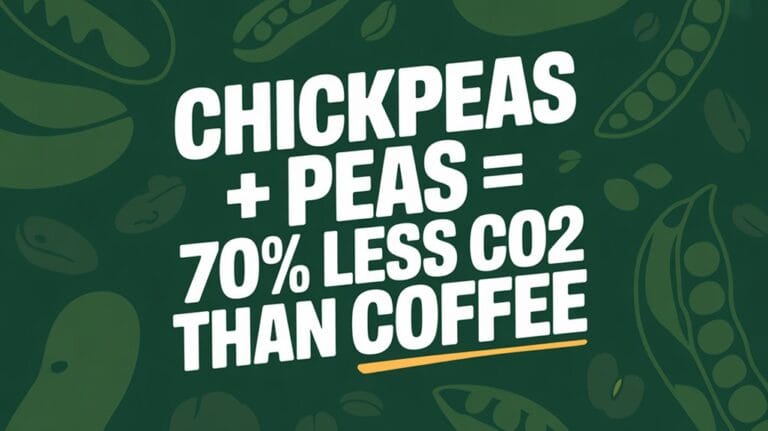A Belgian startup is brewing an unusual coffee alternative from chickpeas and peas. Koppie, founded in 2022 by former Alpro executive Daan Raemdonck, uses a patent-pending fermentation and roasting process to turn legumes into “Koppie Bean”—a product that’s ground and brewed like coffee. This sustainability innovation taps into global efforts to cut agricultural emissions, offering 70% lower CO2 output than regular coffee while using 90% less water. The startup recently joined the Biotope accelerator’s fall 2024 cohort, gaining strategic support to scale its technology and market reach.
Koppie’s formula mixes science with practicality. Locally sourced chickpeas and peas undergo natural fermentation, mimicking steps in coffee bean processing. The result? A versatile product that works as a full coffee substitute or hybrid blend, mixing up to 50% with traditional beans. Mudcake, Rockstart, and angel investors joined the pre-seed funding round, diversifying backing for Koppie’s ambitious production targets.
Early tastings by professional Q Graders score it near 70/100, noting sweeter flavors and less bitterness than average coffee. Though not a full replacement, it’s designed to help roasters and brands tackle supply instability caused by climate change.
The startup’s environmental pitch is hard to ignore. Legumes don’t require deforestation, unlike coffee shrubs, and need 60% less farmland. As droughts and rising temperatures threaten coffee-growing regions, companies like Nestlé and Starbucks face supply chain risks. Koppie positions itself as a buffer, offering stable pricing and sourcing for an industry bracing for shortages.
Its strategy mirrors plant-based meat and dairy sectors, where blending alternatives with traditional products eased consumer adoption.
Backed by Nucleus Capital and other investors in a pre-seed round, Koppie plans to scale production by 2026. Funds will expand pilot projects with roasters and refine the product’s sensory profile.
Competitors like Voyage Foods and Prefer highlight rising demand for coffee alternatives, but Koppie’s hybrid approach sets it apart. By avoiding direct competition with “real” coffee, it sidesteps the all-or-nothing battles that stalled early plant-based meat ventures.
Coffee giants aren’t scrambling yet, but Koppie’s model offers a low-risk test for companies eyeing greener portfolios. With climate pressures mounting, legume-based blends might soon percolate into mainstream aisles—brewing a quiet but potent challenge to the $460 billion coffee industry.

